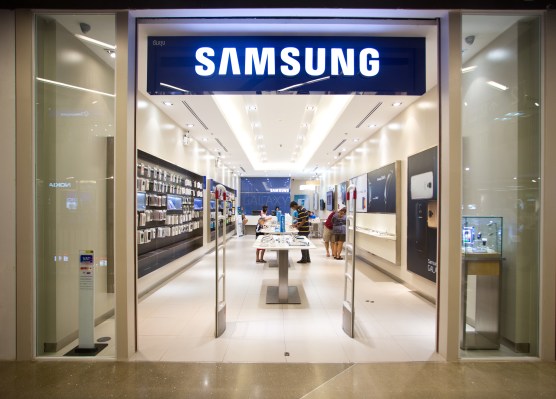Samsung Electronics has disclosed its first-quarter earnings, with operating profit tumbling once again thanks to pressure from rival smartphone makers. Its performance stands in sharp contrast to Apple, which posted its second-largest quarterly earnings of all time earlier this week.
The South Korean company reported net profit of 4.63 trillion won (about $4.35 billion), a 39 percent drop from the 7.49 trillion won it reported a year ago. This fell below analysts’ expectations, as well as Samsung’s own forecast for operating profit of 5.9 trillion won. Revenue slipped 12 percent year-over-year to 47 trillion won.
Samsung Electronics’ smartphone sales have been hurt by competition with Apple and a slew of smaller Android device makers, but Samsung sounded an optimistic note, predicting a recovery in the second quarter thanks to its new Galaxy S6 and Galaxy S6 Edge.
The company also said in its earnings call that China and India will drive demand for its smartphones this year, even though it faces stiff competition from makers like Xiaomi and Micromax in those markets.
The company warned, however, that overall smartphone and tablet sales demand might stagnate due to seasonality. On the other hand, demand for high-end televisions and air conditioners is expected to increase in the second quarter, but that may not be enough to help Samsung Electronics’ consumer electronics unit totally recover. It posted a loss of 140 billion won, compared to a 190 billion won profit a year ago.
Samsung Electronics’ mobile unit saw its first-quarter operating profit plunge 57 percent year-over-year to 2.74 trillion won. Its operating profit margins climbed 10.6 percent quarter-over-quarter, however, which the company attributed to stronger sales of its mid-range smartphones. The company said it plans to continue boosting margins by spending less on marketing.
In addition, the company also believes its second-quarter earnings will be buoyed by its semiconductor business, as it sells memory chips to other smartphone manufacturers that are about to launch new flagship smartphones (for example, Samsung Electronics will reportedly supply processor chips for the next iPhone). Like mobile, its semiconductor unit has also seen an improvement in margins, which climbed to 28.5 percent this quarter compared to 20.8 percent a year ago.
